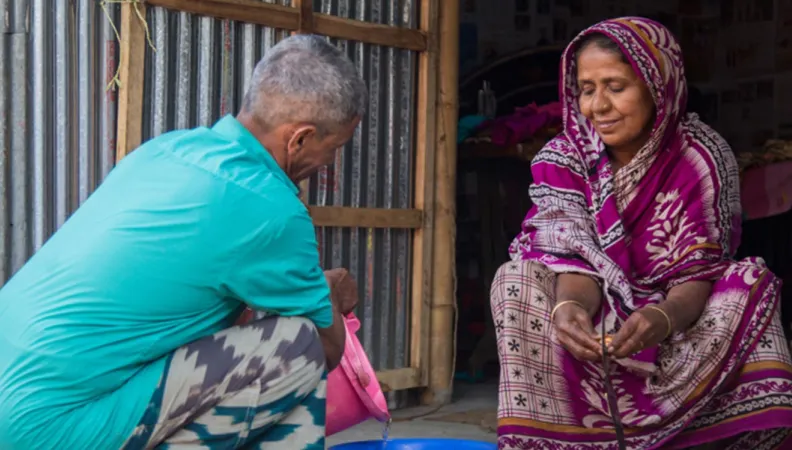Share the page
Budget support: Strengthening the health care system and non-contributory health protection mechanisms
Project


-
Project start date
-
Status
Ongoing
-
Project duration
-
20 years
-
AFD financing amount
-
€ 200 000 000
-
Country and region
-
Location
-
Bangladesh
-
Type of financing
-
Beneficiaries
-
Ministry of Health and Family Welfare
As part of the national response to the Covid-19 epidemic, the AFD supports the Government of Bangladesh through a policy-based loan to develop the vaccination campaign against Covid-19 and strengthen the health and social protection system.
Context
The Covid-19 pandemic has exerted enormous pressure on Bangladesh’s health system, which is confronted to low public investments, shortages of human resources and equipment and uneven distribution of health services in cities and rural areas. In addition, demographic pressure and the effects of climate change significantly increase exposure to epidemiological risks, the country being one of the most densely populated and flood-prone in the world. In this context, the government has been seeking to develop a more resilient and accessible health and social protection system, as a prerequisite for addressing the growing dual challenge of vector-borne and non-communicable diseases.
Description
The project is based on a public policy matrix, which includes key actions and indicators that were co-defined with the Bangladeshi authorities and aim at strengthening the resilience of the health and social protection system.
The different activities will contribute in particular to support the healthcare staff involved in the covid-19 response, improving the quality of human resources, health infrastructures and epidemiological surveillance through laboratories, putting in place non-contributory insurance schemes and advocating for allocating more public funds to health services.
Transversally, the project will help with capacity building and adaptation of health services to climate change through improving the surveillance of climate related diseases, the energy efficiency of infrastructure as well as disaster preparedness. The project will also promote gender equality in terms of access to vaccination, quality health services, health insurance and facilitating training and benefits for female healthcare staff.
Impacts
The main expected outcome is to strengthen in the medium and long terms the health and social protection system in Bangladesh. The specific objectives are to achieve:
- A critical level of Covid-19 herd immunity by supporting the Government ‘s response to the health crisis
- The provision of quality healthcare through investments in infrastructure and human resources training and the early detection of emerging pathogens (including climate-sensitive diseases) through enhanced epidemiological surveillance
- Universal health coverage and financial risk protection through the extension of non-contributory insurance schemes.


